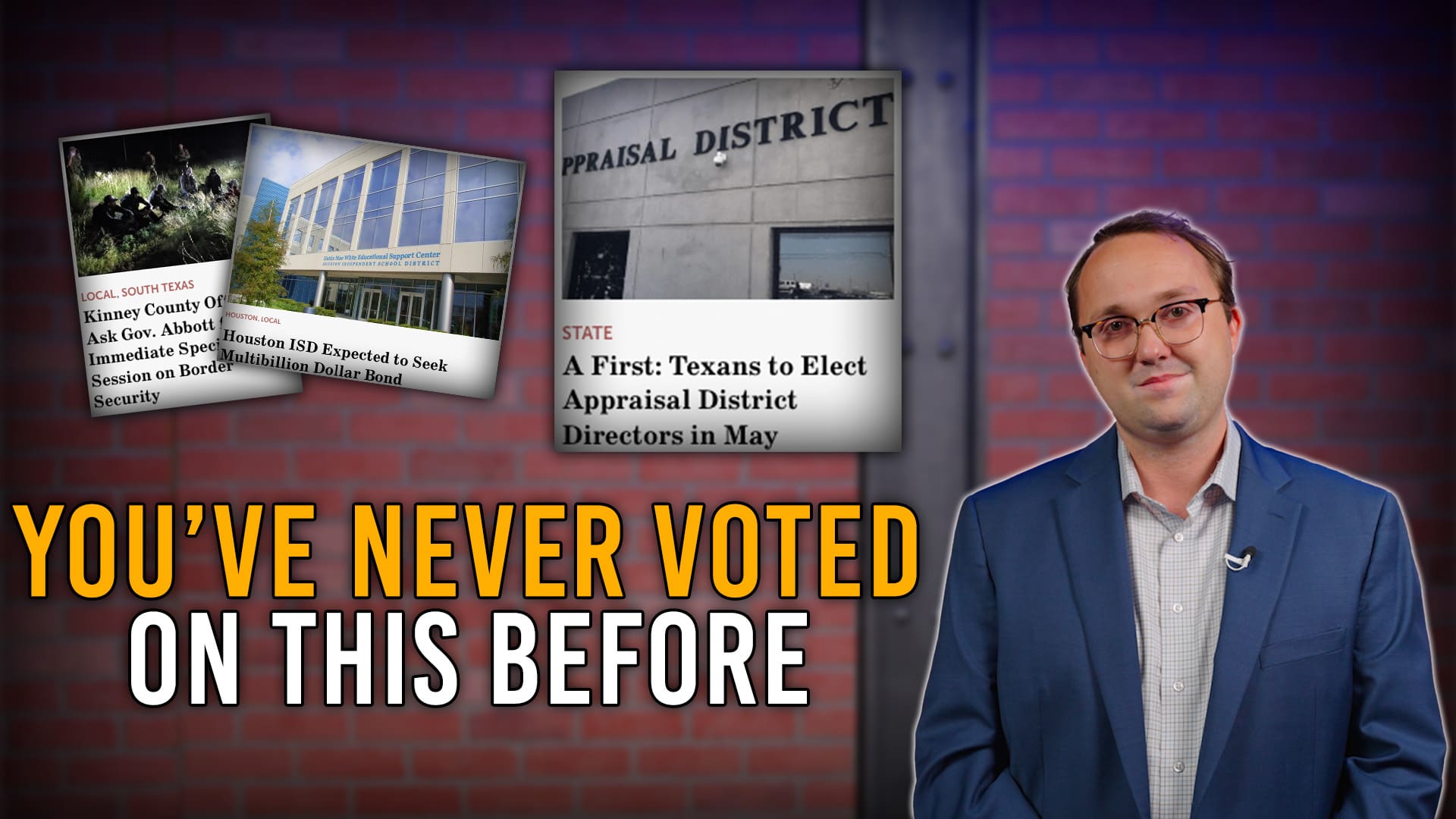A new rule under consideration by the Texas Ethics Commission is so poorly drafted that no citizen could ever be expected to comply with its requirements. The rule is aimed at forcing Texans to file even more information when they spend money speaking about candidates, campaigns, and ballot measures.
The rule is not yet in place but has been published for public comment in the lead up to its adoption by the TEC.
Entitled “expenditures involving consultants,” the proposed rule attempts to close a purported “loophole” that has allowed candidates to hide many of their individual campaign expenditures, such as for mailers, opposition research, or polling, by paying a lump sum to their campaign consultant and having the consultant make the individual disbursements to vendors and subcontractors.
Because of the loophole, expenditure reporting is largely meaningless because actual payees can be hidden from public view. But the new TEC rule looks like it will create more problems than it will solve.
The wisdom of our difficult legislative process – where bills must pass the scrutiny of two bodies and their committees multiple times before being signed by the governor – is in stark relief compared to the rulemaking process followed by the TEC. There, six commissioners simply vote to publish a rule, take public comments, and then are allowed two months later to vote to adopt it.
The absence of safeguards or real public engagement means that rules, which are often indistinguishable in their application and scope from laws, are often a disastrous mess. Such is the case with the TEC’s latest effort.
The proposed rule starts off with a broad provision stating that all expenditures made by a “consultant” on behalf of any filer (that not only includes candidates, but also regular citizens) must be reported as if the filer made the expenditure. It then goes on to say the expenditure must be reported as if the filer made the expenditure directly to the particular person paid by the consultant.
Combined with a proposed definition for “consultant” and “consulting services” that covers just about every service a vendor would possibly provide to a person spending money on an election, this portion of the rule is capable of being understood, though it is totally unworkable. By its plain meaning, a person filing reports with the TEC would have to disclose all of the expenditures made by a vendor to the vendor’s employees, subcontractors, and suppliers.
But the TEC wasn’t satisfied with that mess. They had to add subsection (c).
“(c) The payee of an expenditure for consulting services made by a filer to a consultant is the consultant if:
(1) the expenditure is compensation for consulting services; or
(2) the expenditure is a payment to the consultant as a retainer, advance, or reimbursement for one or more expenditures made or to be made by the consultant on behalf of, but not at the direction of, the filer.”
It’s not clear what this incomprehensible section is meant to accomplish, or how it is meant to interact with the opening lines of the new rule. It seems to be instructions on how to fill out the TEC’s forms, but in its first part, it appears to undo the entire purpose of the rule. But in the second clause it appears to make an unclear distinction between expenditures made by consultants on the behalf of, but not at the direction of, TEC filers. Yet this distinction is not found in subsection (a) or (b), and so the two pieces of the rule don’t really work together.
Even if a distinction were made between directed and undirected consultant expenditures, it would put the TEC in the position of determining when a payment was made “at the direction” of a filer. This would appear to allow the commission to peer into the internal matters of any Texan who ends up in their crosshairs.
The only thing that is clear about the rule is that it makes it impossible for a citizen to comply with election reporting requirements without the aid of an attorney. (And considering the writer of this article is an attorney who can’t make heads or tails of the rule, it may be impossible to comply with the rule even with the assistance of an attorney.) It’s also clear that establishment politicians, with sophisticated legal teams and allies on the commission, will continue to exploit loopholes in the rule with little consequence.
The TEC’s latest rulemaking effort mimics the agency’s website, which a national study has found is dead last in transparency and usability.
Comments from the public can be emailed to public_comment@ethics.state.tx.us, or mailed or delivered to Natalia Luna Ashley, Texas Ethics Commission, P.O. Box 12070, Austin, Texas 78711-2070, or faxed to (512) 463-5777.




